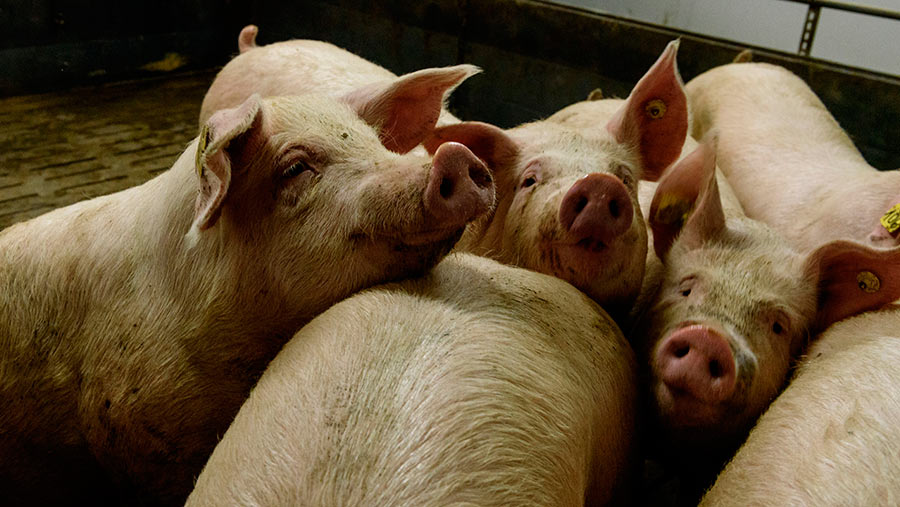Pig industry achieves further antibiotic reductions
 © Markus Heine/EPA-EFE/REX/Shutterstock
© Markus Heine/EPA-EFE/REX/Shutterstock Pig farmers remain on track to hit industry antibiotic reduction targets after cutting drugs use by 16% in 2018, leading vets say.
Total recorded antibiotic use for UK pig farms fell for the third consecutive year to 110mg/PCU (population correction unit).
This brings the industry closer to its target of 99mg/PCU or lower by 2020.
Responding to the electronic medicine book (eMB) data, a spokesperson for the Responsible Use of Medicines in Agriculture (Ruma) told Farmers Weekly the reduction in both total and highest priority antibiotic use was a “considerable achievement”.
The data set, which covers 89% of slaughter pigs in 2018 and all Red Tractor-assured farms, shows three consecutive decreases since monitoring started in 2015.
See also: 5 zinc oxide alternatives for pigs compared
Antibiotic use on UK pig farms |
||
|
Year |
mg/PCU |
Year-on-year change |
|
2015 |
278 |
– |
|
2016 |
183 |
-34% |
|
2017 |
131 |
-28% |
|
2018 |
110 |
-16% |
Critical drugs
A considerable decrease was recorded in the use of critically important antibiotics (CIAs) as defined by the World Health Organization. Both colistin and third- and fourth-generation cephalosporins fell for the third consecutive year.
Colistin use fell to 0.004mg/PCU, a drop of 99.5% on 2015 levels.
Fluoroquinalone use fell significantly after increasing last year.
Getting tougher
Mandy Nevel, head of animal health and welfare at AHDB, said the easy improvements and alterations to farms and management systems had now been made and that lowering antibiotics use further would be tougher.
“As we approach the level of 99mg/PCU we need to hit by 2020, it will get harder to keep on making reductions in antibiotic use,” she told Farmers Weekly. “Farmers and vets can’t take their foot off the pedal.
“We are expecting smaller reductions in usage from here on in.”
However, she stressed that antibiotics were essential to ensure animal welfare and that vets and farmers were best placed to decide as soon as possible when to treat to catch diseases early.
She said the scheduled removal of zinc oxide from diets in 2022 was a complicating factor in antibiotic stewardship, but was already being proactively addressed by farms, vets and nutrition companies, some of whom had already worked together to reduce and remove it from farms.
Ms Nevel said a range of on-farm and industry-wide efforts had brought about a significant reduction in antibiotics use:
- Regularly reviewing antibiotic use and questioning whether it is necessary
- System-specific benchmarking – comparing with other farms
- Tighter farm biosecurity
- Improved health status by improved management and, if necessary, depopulating to control significant disease
- Use of alternative disease control strategies – probiotics, acids etc
- Uptake of vaccination.
